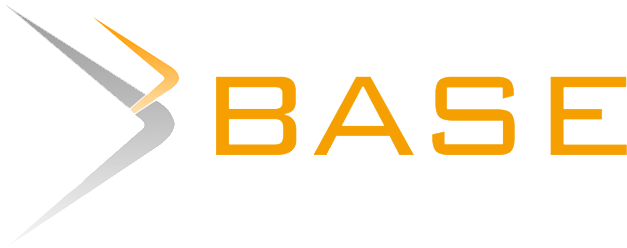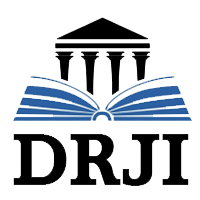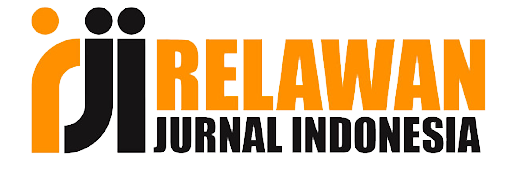- Focus and Scope
- Section Policies
- Peer Review Process
- Publication Frequency
- Open Access Policy
- Archiving
- Publication Ethics
- Article Processing Charge
- Content License
- Indexing
- Plagiarism Screening Policy
- Repository Policy
Focus and Scope
Jurnal Psikologi Perseptual is a scientific journal that examines empirical or non-empirical research from various fields as well as a medium for scientific publications in the discipline of psychology. These fields include
- Developmental psychology
- Industrial / Organizational Psychology
- Educational Psychology
- Social Psychology
- Clinical Psychology
- Sport Psychology
- Applied Psychology
- Psychometry
- Experimental Psychology
Jurnal Psikologi Perseptual accepts every empirical research paper on the above topic that meets publication standards in the Journal of Psychology.
Section Policies
Developmental Psychology
Applied Psychology
Industrial Organizational Psychology
Educational Psychology
Social Psychology
Clinical Psychology
Psychometry
Experimental Psychology
Artikel
Peer Review Process
Articles submitted to Jurnal Psikologi Perseptual will be reviewed by our editor in about 2 weeks. From the format review process, it will be followed by a review process by our reviewer team. The whole process from submitting to publication will take about 4 - 16 weeks on average.
The review was conducted in a double-blind, peer-reviewed manner, in which the author and reviewer did not know each other; the author does not know who reviewed the article, and vice versa, the reviewer does not know whose article is being reviewed.
The article will be checked for authenticity of the article before being published. The checker software that the Jurnal Psikologi Perseptual uses is TURNITIN.
If the article is declared accepted, the author does not need to make revisions. However, if the article is declared accepted with a revision, the author must correct the article according to the results of the review and return it to the editorial team through the OJS Jurnal Psikologi Perseptual within 1 - 2 weeks.
Publication Frequency
Jurnal Psikologi Perseptual (eISSN 2580-9520) is published twice a year in July and December.
Open Access Policy
Jurnal Psikologi Perseptual (eISSN 2580-9520) provides immediate open access to its content on the principle that making research freely available to the public supports a greater global exchange of knowledge.
This journal is an open access journal, which means that all content is freely available to users or / institutions. Users are allowed to read, download, copy, distribute, print, search, or link to full text articles in this journal without first seeking permission from the publisher or author as long as they acknowledge the original author as stated in the CC BY-SA 4.0 license from Creative Commons.
Archiving
OJS LOCKSS system to create a distributed filing system among partitioned libraries and allow those libraries to create permanent archives if the purpose is for preservation and restoration. Continue ...
Publication Ethics
Jurnal Psikologi Perseptual (eISSN 2580-9520) is an open access journal published by Faculty of Psychology, Muria Kudus University. This statement clarifies the ethical behaviour of all parties involved in the act of publishing an article in this journal including the author, the chief editor, the Editorial Board, the peer-reviewer and the publisher which refers to the COPE (Publications Ethics Committee).
Duties of Publisher
Faculty of Psychology, Muria Kudus University, as the publisher of Jurnal Psikologi Perseptual (eISSN 2580-9520) takes its responsibility and commitment to ensure that advertising, reprint, or other commercial revenue has No. impact or influence on editorial decisions. In addition, Faculty of Psychology, Muria Kudus University and Editorial Board will assist in communications with other journals and/or publishers where this is useful and necessary.
Allegations of Research Misconduct
Research misconduct means fabrication, falsification, citation manipulation, or plagiarism in producing, performing, or reviewing research and writing an article by authors, or in reporting research results. When authors are found to have been involved with research misconduct or other serious irregularities involving articles that have been published in scientific journals, Editors have a responsibility to ensure the accuracy and integrity of the scientific record.
In cases of suspected misconduct, the Editors and Editorial Board will use the best practices of COPE to assist them to resolve the complaint and address the misconduct fairly. This will include an investigation of the allegation by the Editors. A submitted manuscript that is found to contain such misconduct will be rejected. In cases where a published paper is found to contain such misconduct, a retraction can be published and will be linked to the original article.
The first step involves determining the validity of the allegation and an assessment of whether the allegation is consistent with the definition of research misconduct. This initial step also involves determining whether the individuals alleging misconduct have relevant conflicts of interest.
If scientific misconduct or the presence of other substantial research irregularities is a possibility, the allegations are shared with the corresponding author, who, on behalf of all of the coauthors, is requested to provide a detailed response. After the response is received and evaluated, additional review and involvement of experts (such as statistical reviewers) may be obtained. For cases in which it is unlikely that misconduct has occurred, clarifications, additional analyses, or both, published as letters to the editor, and often including a correction notice and correction to the published article are sufficient.
Institutions are expected to conduct an appropriate and thorough investigation of allegations of scientific misconduct. Ultimately, authors, journals, and institutions have an important obligation to ensure the accuracy of the scientific record. By responding appropriately to concerns about scientific misconduct, and taking necessary actions based on evaluation of these concerns, such as corrections, retractions with replacement, and retractions, Jurnal Psikologi will continue to fulfill the responsibilities of ensuring the validity and integrity of the scientific record.
Duties of Editor
- Publication decisions
The editor of Jurnal Psikologi Perseptual (eISSN 2580-9520) is responsible for deciding which of the article submitted to the journal should be published. The editor may also confer with other editors or reviewers in making this decision.
- Fair play
The editor at any time evaluate manuscript for their intellectual content without regard to race, gender, sexual orientation, religious belief, ethnic origin, citizenship, or political philosophy of the authors.
The editor ensures that manuscript is consistent with focus and scope of this journal. The editor takes comments and recommendation from reviewers as consideration to make editor’s decision, whether the manuscrip is accepted, accepted with minor/major revision, or rejected.
A submitted manuscript is rejected because of some considerations, including: out of scope, lack of scientific merit, significant methodological error, and author’s refusal to revise reviewer’s recommendation without logical rationale.
Publication of accepted articles including assigning the article to the published issues will be made by Editor in Chief by considering the sequence of accepted date and geographical distribution of authors as well as a thematic issue.
- Confidentiality
The editor and any editorial staff must not disclose any information about a submitted manuscript to anyone other than the corresponding author, reviewers, potential reviewers, other editorial advisers, and the publisher, as appropriate.
- Disclosure and conflicts of interest
Unpublished materials disclosed in a submitted manuscript must not be used in an editor's own research without the express written consent of the author.
Duties of Reviewers
- Contribution to Editorial Decisions
Peer review assists the editor in making editorial decisions and through the editorial communications with the author may also assist the author in improving the paper.
- Promptness
Any selected referee who feels unqualified to review the research reported in a manuscript or knows that its prompt review will be impossible should notify the editor and excuse himself from the review process.
- Confidentiality
Any manuscripts received for review must be treated as confidential documents. They must not be shown to or discussed with others except as authorised by the editor.
- Standards of Objectivity
Reviews should be conducted objectively. Personal criticism of the author is inappropriate. Referees should express their views clearly with supporting arguments.
- Acknowledgement of Sources
Reviewers should identify relevant published work that has not been cited by the authors. Any statement that observation, derivation, or argument had been previously reported should be accompanied by the relevant citation. A reviewer should also call to the editor's attention any substantial similarity or overlap between the manuscript under consideration and any other published paper of which they have personal knowledge.
- Disclosure and Conflict of Interest
Privileged information or ideas obtained through peer review must be kept confidential and not used for personal advantage. Reviewers should not consider manuscripts in which they have conflicts of interest resulting from competitive, collaborative, or other relationships or connections with any of the authors, companies, or institutions connected to the papers.
Duties of Authors
- Reporting standards
Authors of reports of original research should present an accurate account of the work performed as well as an objective discussion of its significance. Underlying data should be represented accurately in the paper. A paper should contain sufficient detail and references to permit others to replicate the work. Fraudulent or knowingly inaccurate statements constitute unethical behaviour and are unacceptable.
- Originality and Plagiarism
The authors should ensure that they have written entirely original works, and if the authors have used the work and/or words of others that this has been appropriately cited or quoted.
- Multiple, Redundant or Concurrent Publication
An author should not, in general, publish manuscripts describing essentially the same research in more than one journal or primary publication. Submitting the same manuscript to more than one journal concurrently constitutes unethical publishing behaviour and is unacceptable.
- Acknowledgement of Sources
Proper acknowledgement of the work of others must always be given. Authors should cite publications that have been influential in determining the nature of the reported work.
- Authorship and Contributorship of the Article
Authorship should be limited to those who have made a significant contribution to the conception, design, execution, or interpretation of the reported study. All those who have made significant contributions should be listed as co-authors.
Where there are others who have participated in certain substantive aspects of the research project, they should be acknowledged or listed as contributors.
The corresponding author should ensure that all appropriate co-authors and no inappropriate co-authors are included on the paper and that all co-authors have seen and approved the final version of the paper and have agreed to its submission for publication.
- Disclosure and Conflicts of Interest
All authors should disclose in their manuscript any financial or other substantive conflicts of interest that might be construed to influence the results or interpretation of their manuscript. All sources of financial support for the project should be disclosed.
- Fundamental errors in published work
When an author discovers a significant error or inaccuracy in his/her own published work, it is the author’s obligation to promptly notify the journal editor or publisher and cooperate with the editor to retract or correct the paper.
Article Processing Charge
This journal charges the following author fees.
Processing Charge*: 500.000 (IDR)
Processing charge is paid via Bank Transfer, BNI no. 0350329252 (a.n. Kholifah Umi Sholihah).
And click this number +62 857-7594-9071 (WA-Only) to notify us to complete the process.
*) Processing Charge will be returned to the author if the result of the article process is 'Rejected'
Content License
Creative Common Attribution-ShareAlike 4.0 International (CC BY-SA 4.0)
You are free to:
- Share — copy and redistribute the material in any medium or format
- Adapt — remix, transform, and build upon the material
- for any purpose, even commercially.
The licensor cannot revoke these freedoms as long as you follow the license terms.
Under the following terms:
- Attribution — You must give appropriate credit, provide a link to the license, and indicate if changes were made. You may do so in any reasonable manner, but not in any way that suggests the licensor endorses you or your use.
- ShareAlike — If you remix, transform, or build upon the material, you must distribute your contributions under the same license as the original.
- No additional restrictions — You may not apply legal terms or technological measures that legally restrict others from doing anything the license permits.
Notices:
- You do not have to comply with the license for elements of the material in the public domain or where your use is permitted by an applicable exception or limitation.
- No warranties are given. The license may not give you all of the permissions necessary for your intended use. For example, other rights such as publicity, privacy, or moral rights may limit how you use the material.
Indexing
- Dimension
- Google Scholar
- Garuda
- Crossref
- Sinta
- DOAJ
- Neliti
- Onesearch
- Worldcat
- Base
- Scilit
- Journal Stories
- Index Copernicus
- Ebsco Essential
- Open Aire
- Science Gate
- DRJI
- Research Bib
- MIAR Univesitat de Barcelona
Plagiarism Screening Policy
The author should prevent the manuscript from plagiarism indication. The manuscript submitted into this journal will be screened for plagiarism using Turnitin Plagiarism Detection Software. The similarity index accepted in this journal for further process is not more than 30%. A submitted manuscript that has a similarity index of more than 30% will be returned to the author for revision.
Repository Policy
The Jurnal Psikologi Perseptual allows authors to deposit versions of their work. All of published articles in the Jurnal Psikologi Perseptual are deposited in Portal Garuda repository.















